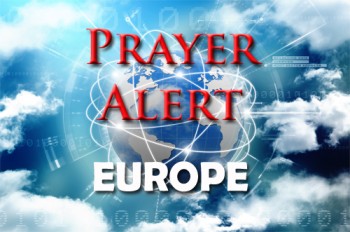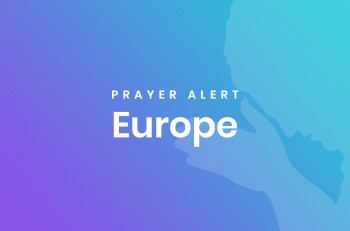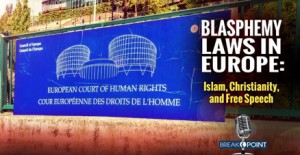Displaying items by tag: Austria
Austria: Russian video scandal
On 18 May Austria's vice-chancellor Heinz-Christian Strache resigned after German media published a video that purportedly showed him offering government contracts to a woman posing as the niece of a Russian oligarch, in exchange for media coverage and political funding. The scandal drove Austria’s Chancellor Sebastian Kurz to call for snap elections instead of trying to revive his weakened coalition government. ‘Enough is enough,’ Kurz told reporters, while Strache, who leads Austria's far-right Freedom Party, described the incident as a ‘targeted political assassination.’ The video was reportedly just months before Austria's last election, where Strache's party received 26% of the vote and 51 seats. In the wake of the video, Kurz said the abuse of power, taxes and interference in media affairs were among his concerns. Strache vowed to take legal steps to address the video.
Killer winter storms
Brutal winter weather is battering Europe, with ‘significant and disruptive’ snow forecast to continue for up to two weeks. Snow trapped hundreds in Alpine regions, caused avalanches and flight delays, and worst of all hit dozens of refugees housed in tents in northern Greece as temperatures sank to -20C. There have been at least 13 deaths so far in Greece's islands. Poor visibility halted Norway’s attempts to find the bodies of four skiers presumed dead after a huge avalanche hit a valley. Romanian police found the frozen body of a 67-year-old man in a car park where temperatures were -24C. Austrian residents were housebound due to blocked roads, and some regions experienced power outages, closed schools, and buildings collapsing from snow-laden roofs. Many are bracing themselves for more snow, while others prepare for subsequent floods. See
Europe - Blasphemy laws
Islam, Christianity, and Free Speech
We think of Europe as secular, progressive, and confidently post-religious. But try criticizing Islam.
Should governments be in the business of protecting people’s feelings? Most Americans, I think would say no. The European Court of Human Rights, however, thinks otherwise. In a historic move last month, the international court affirmed a conviction by a lower court in Vienna against a right-wing speaker who criticized the prophet Muhammad.
Identified only as “E.S.,” the woman, at a seminar in Vienna in 2009, described the founder of Islam as a “pedophile.” According to Islamic tradition, Muhammad was in his fifties when he married his third wife, Aisha, who was six years old at the time. Tradition also says Muhammad waited to consummate their union until the girl was nine.
For describing this relationship in direct though accurate terms, “E.S.” was reported to Austrian authorities, who charged her with “publicly disparaging religious doctrines,” which, believe it or not, is illegal in that country. The Austrian court convicted, describing her statement as “a malicious violation of the spirit of tolerance,” which was “capable of hurting the feelings” of Muslims, and of putting religious peace in Europe at risk.
After a lengthy appeal, the European Court of Human Rights reaffirmed this troubling verdict, ruling that the speaker’s remarks about Muhammad were not only “without factual basis,” but went “beyond the permissible limits of an objective debate,” thereby putting religious peace in jeopardy. So, peace is in jeopardy because Muhammad is critiqued, and not because of how his followers react to the critique?
Set aside for a moment the factual basis of Muhammad’s treatment of his nine-year-old child bride, and the fact that child brides are still shockingly common throughout the Muslim world. The rationale behind these rulings is genuinely scary for another reason.
This idea that speech should be illegal because it threatens “religious peace” is a capitulation to religious violence. Islamic extremists are well known for rioting and even killing whenever they believe someone has “insulted” the prophet Muhammad.
Exhibit A: Asia Bibi, the woman who was just acquitted by the Pakistani supreme court and taken off death row, where she sat for eight years after an alleged slight against the founder of Islam. Bibi now faces the very real possibility of retaliation or assassination by Pakistani radicals and remains trapped in the country.
What the European Court of Human Rights has essentially done is enact a blasphemy law like Pakistan’s, only in the West! Extremists who get violent over perceived insults have been granted veto power over citizens’ free speech. This, just a few years after the Charlie Hebdo massacre in which twelve people—including journalists—were gunned down in Paris over cartoons mocking (ironically!) the violent tendencies of Muhammad and many of his followers.
If guarantees to freedom of speech—which Europe has—do not include the right to say offensive things about religion, such guarantees are not worth the paper they’re written on. If anyone can shut someone else up simply by complaining of hurt feelings, your society is a dictatorship of the easily offended, not free. Caving to the threat of violence will ultimately embolden the violent, not appease them.
Protecting members of a minority religion from hurt feelings is unique to the West. Islamic extremists take advantage of Europe’s indulgence, demanding legal penalties against anyone who criticize Islam. They won’t, of course, ever return the favor. In countries like Saudi Arabia—the birthplace of Islam—a Muslim who converts to Christianity still, to this day, faces the death penalty.
Of course, religious tolerance and free speech arise historically from only one religion, and it isn’t the one founded by Muhammad. Those who think giving up freedom of speech will preserve peace in the long term aren’t insulting our religion. Just our intelligence.
Europe not coping with mass migration
Not only does Europe continue to fragment as anti-migration views gain political force, but because of the migration crisis, the EU's internal border-free zone, Europe's most precious possession after World War II, ‘is in danger’, according to the Italian and Austrian governments. Recently the Austrian Chancellor, Sebastian Kurz, joined the leaders of the four countries that make up the Visegrad Group (Czech Republic, Hungary, Poland and Slovakia). When discussing the protection of borders he said, ‘We need a Europe that can defend us.’ According to a report by the Heritage Foundation, many believe that recent massive migration has created excessive problems for internal stability in Europe, and security has been compromised. Immigration also challenges ethnic and religious coexistence; quoting 10% of Jewish citizens in Paris being forced to move because they were no longer safe, calling it a silent ethnic cleansing. Statistics also show that the controversial quota system for migrants is failing.
Austria & Germany: Coalitions
Austrian far-right Party, FPO is talking with conservative party, OVP, and people have been protesting against the administration including FPO. FPO had led in the polls for two years - then Mr Kurz became chairman of the ÖVP and his charisma kept FPO (with neo-Nazi roots) from running the country. To govern Mr Kurz needs a coalition partner, and the FPÖ, was his first choice. Coalition talks began three weeks ago but nothing has yet been agreed. In Germany, coalition talks collapsed after a deadlock on migration and energy caused the FDP to quit negotiations. Angela Merkel faces either forming a minority government, or fresh elections. Many are wondering, ‘Is Europe fending off a populist uprising?’ see https://www.theguardian.com/world/2017/nov/19/german-coalition-talks-close-to-collapse-angela-merkel
Austria: election result
The commanding victory of populist parties in the national election will reverberate beyond Austria. Sebastian Kurz, when foreign minister, closed routes through the Balkans for immigrants, and his party spearheaded laws banning full-face Muslim veils in public spaces. His political rise follows the far right gaining influence in Germany last month. Nationalist and anti-immigrant forces across the EU are feeling emboldened by the vote, which could bring the Islamophobic Freedom Party to power in a coalition government in Vienna. The People's Party want to fine migrants who refuse to attend integration and language classes, but the Freedom Party calls for dropping such classes completely. It has also pledged to deny migrants access to welfare payments altogether. If the two parties became coalition partners, Austrian politics would take a seismic shift to the right.





